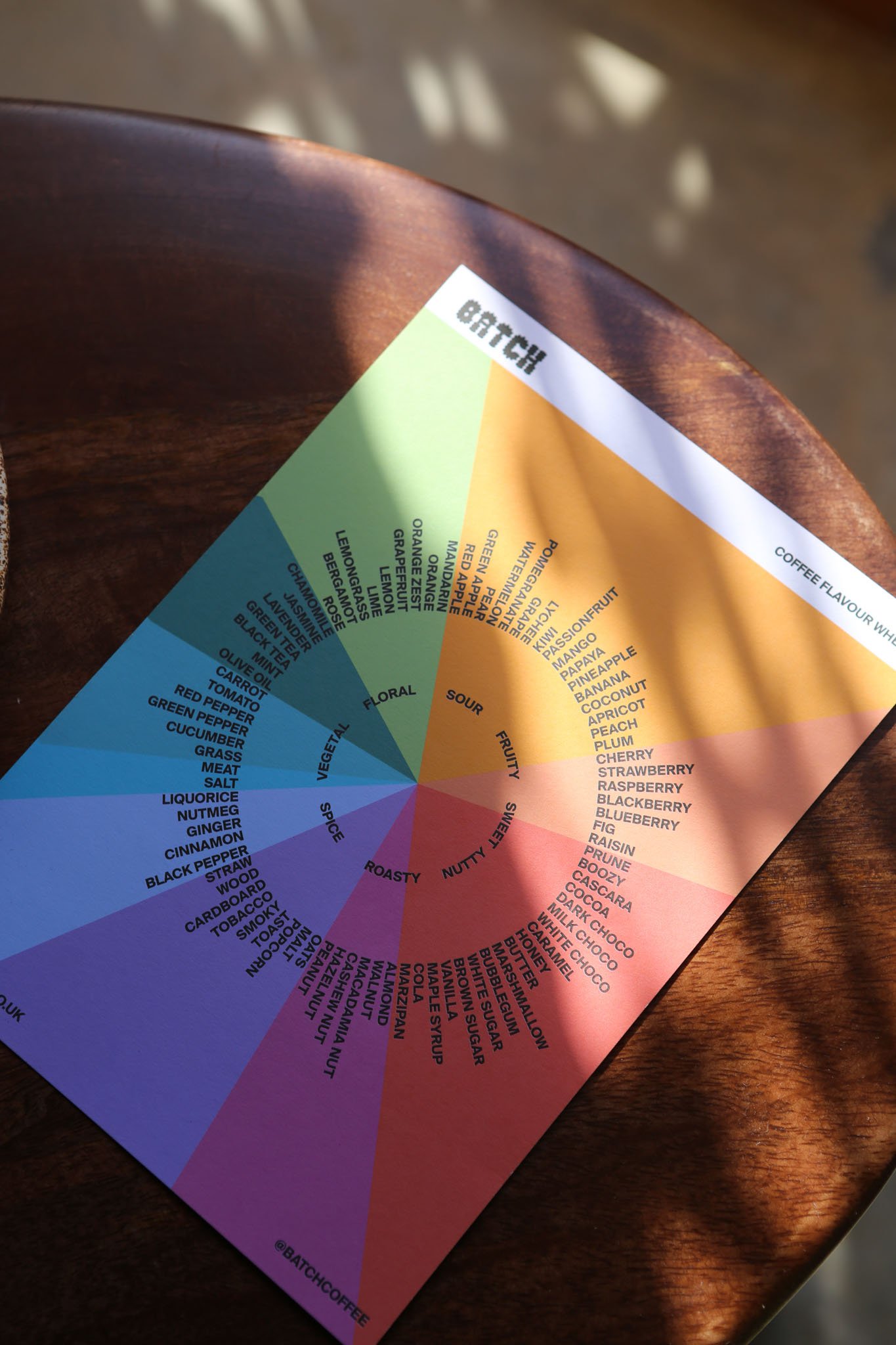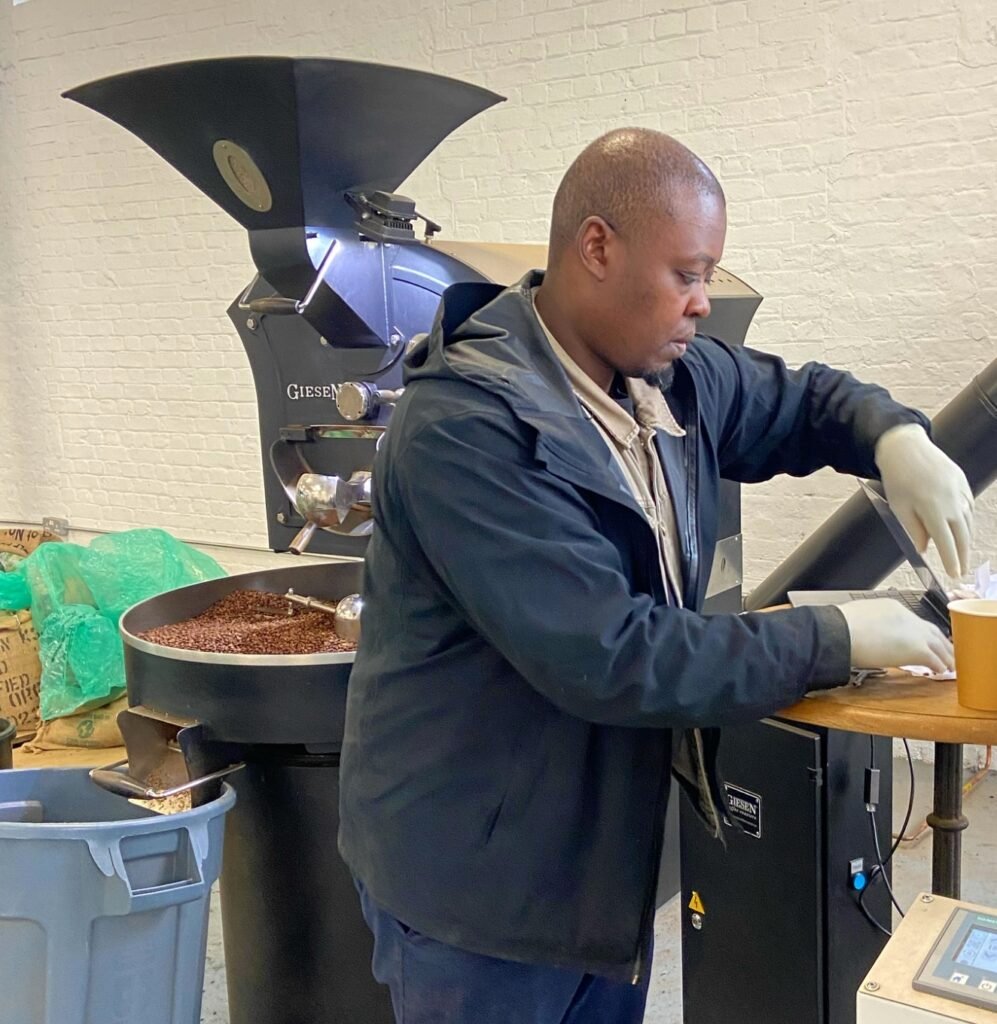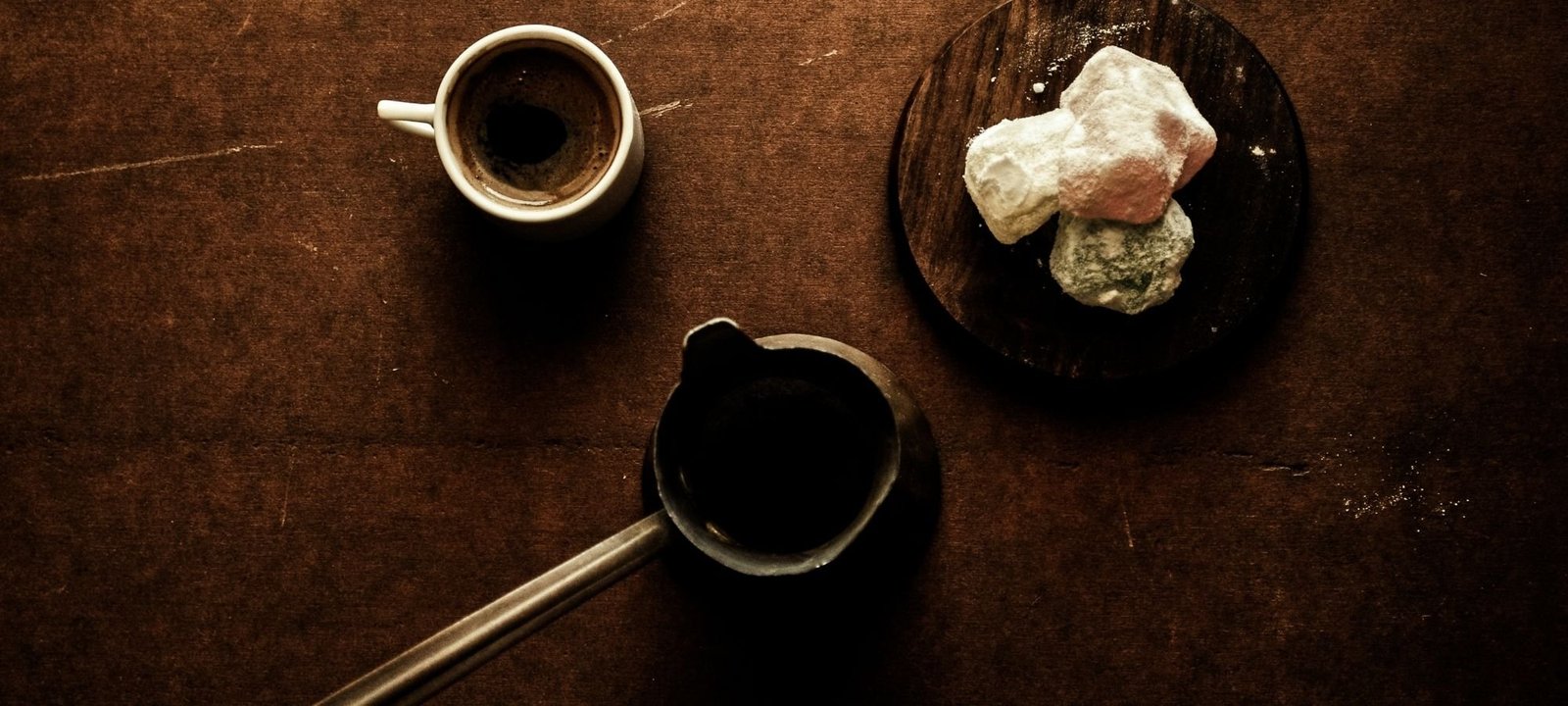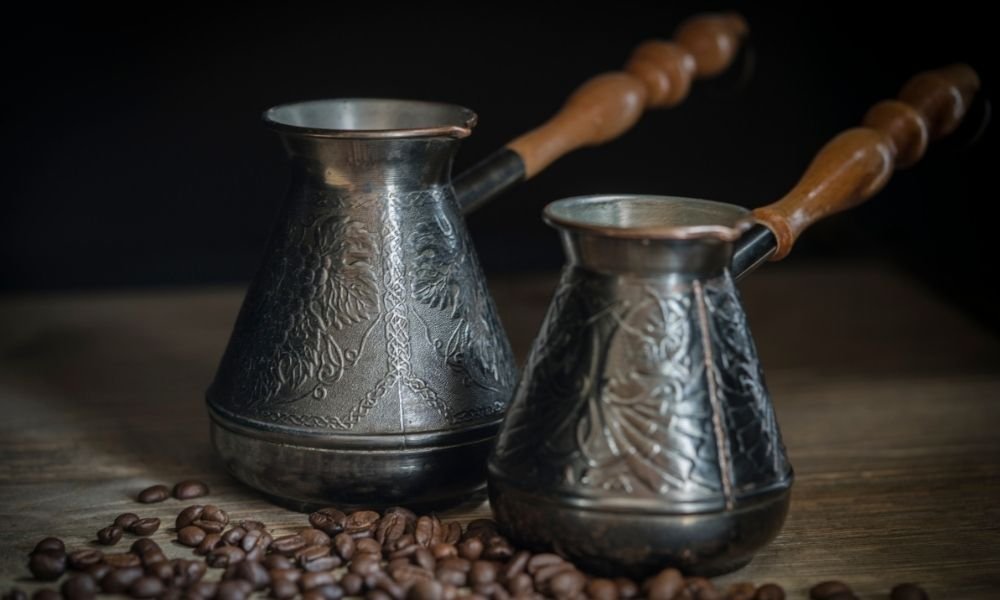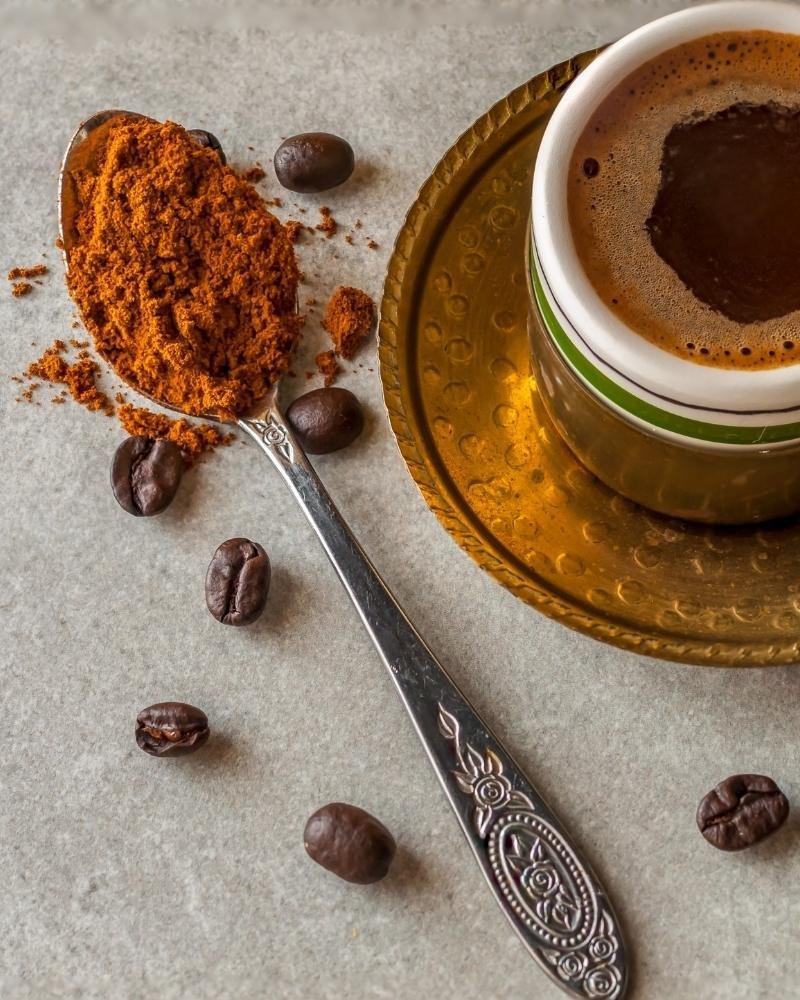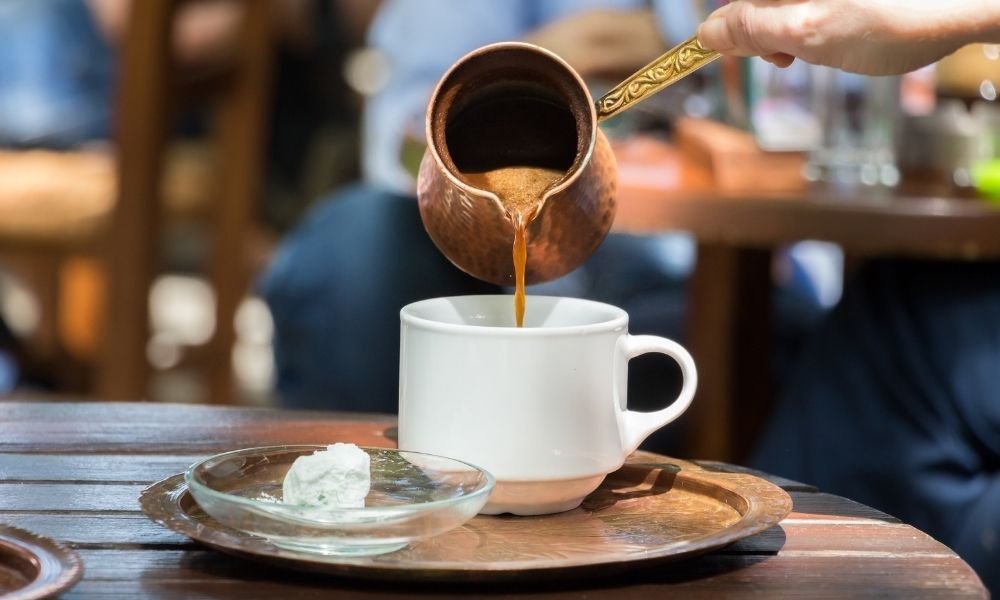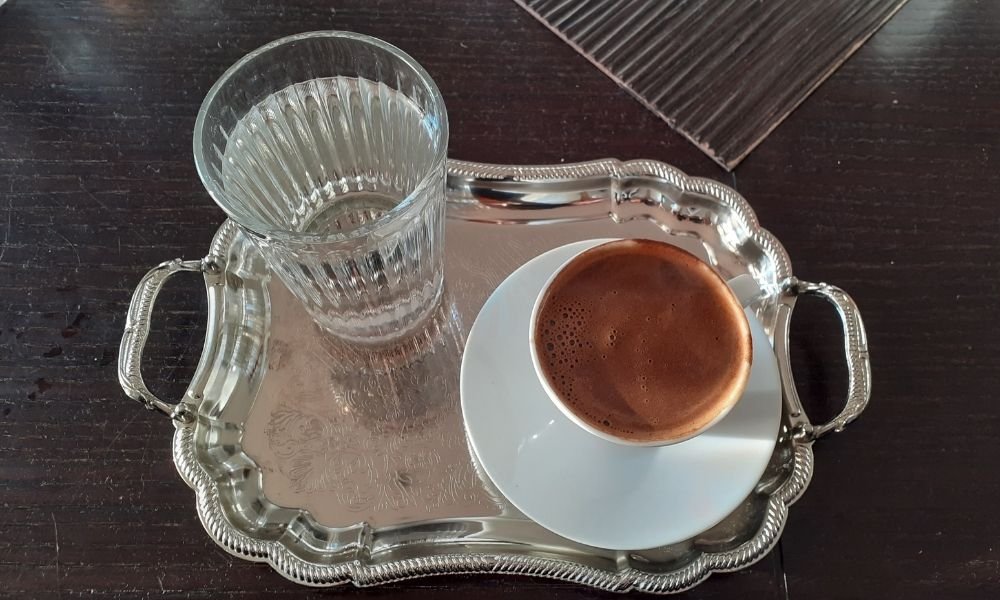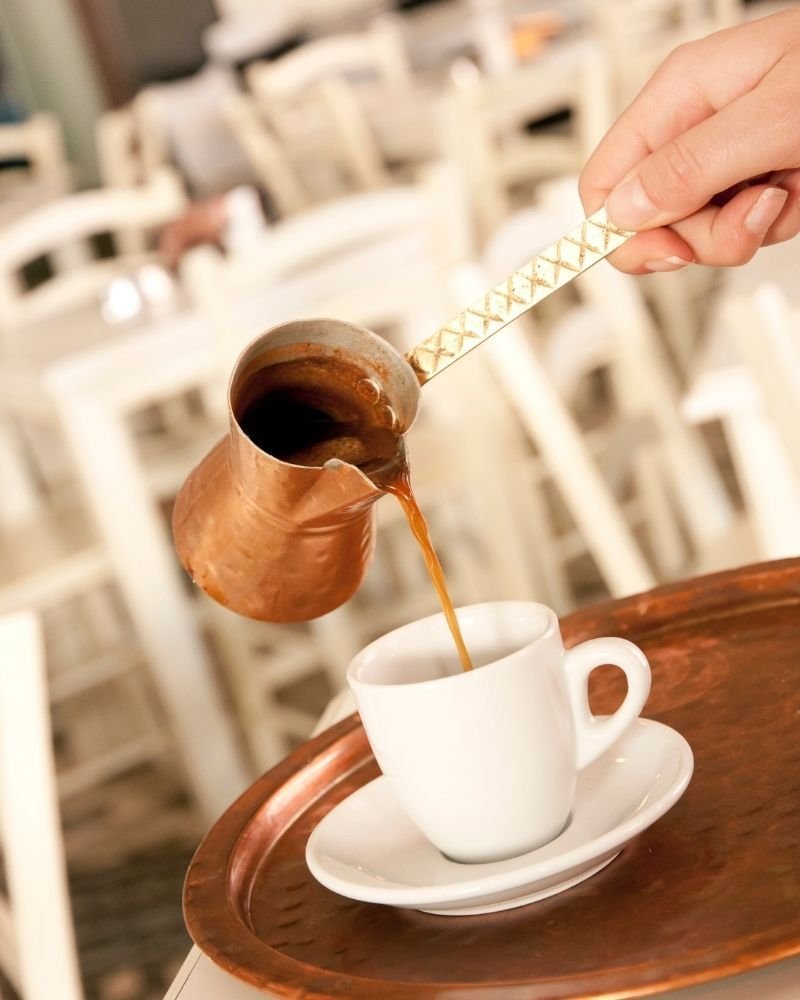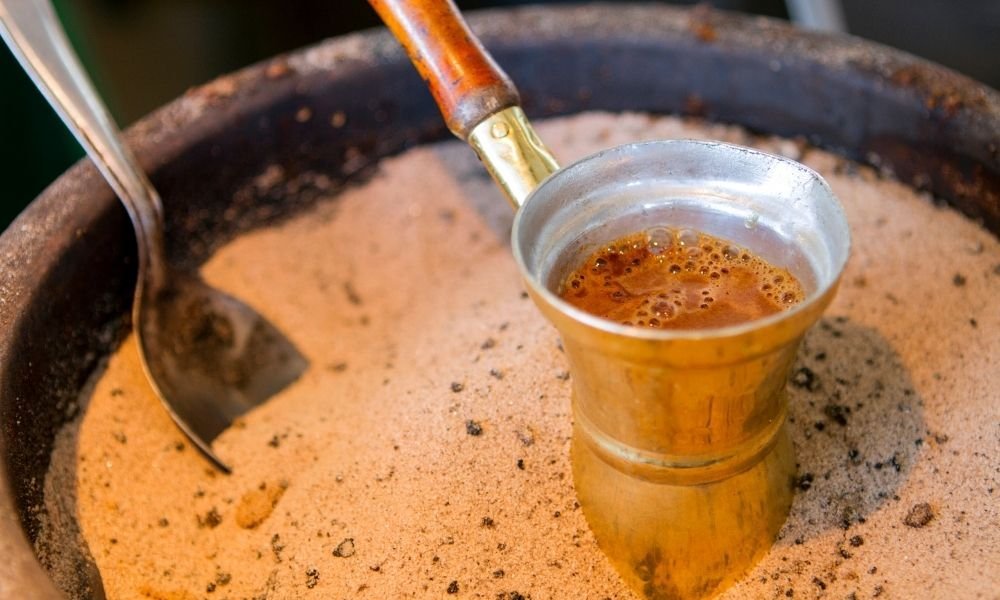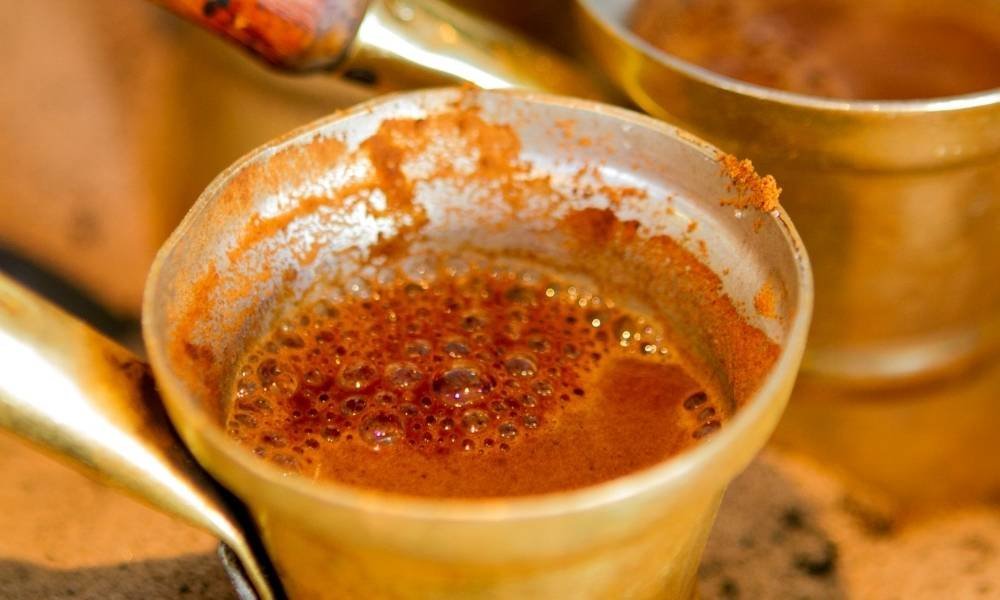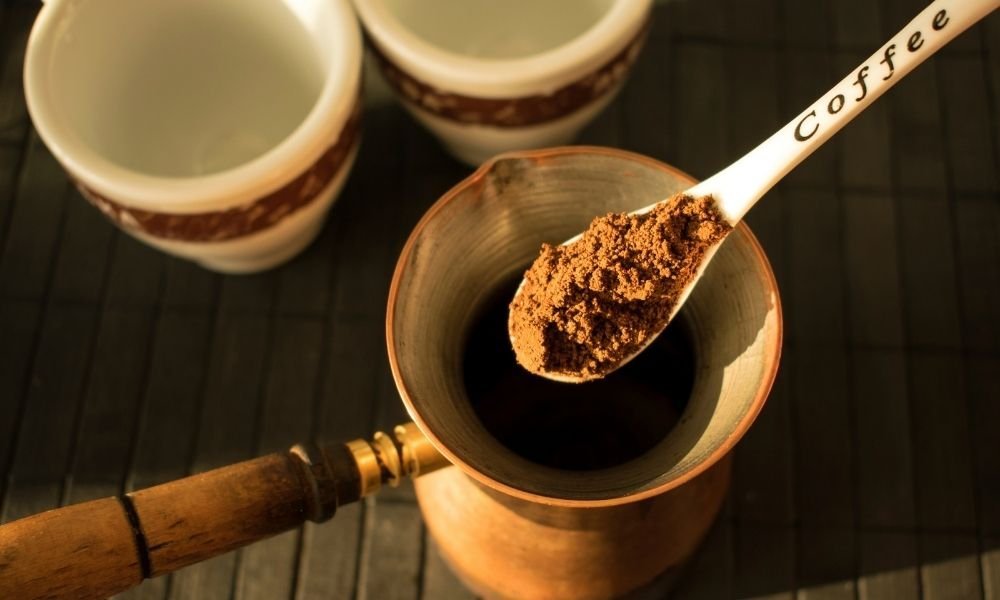What Is The Difference Between Greek Coffee And Regular Coffee?
The mouthfeel and body of Greek coffee makes it different to regular coffee.
Greek coffee is still made using ground coffee and is very similar (if not the same) as Turkish coffee.
It is different to many methods of coffee brewing because the coffee is not filtered.
The majority of coffee, whether it’s a portafilter basket with espresso, a paper cone with a V60 or a mesh plunger with a French press is filtered.
A greek coffee however is made using super fine coffee grounds, during the brew the grounds sink to the bottom of the Greek coffee maker and the coffee is gently poured from the top.
This results in a strong syrupy coffee that tastes roasty and slightly bitter.
What Is Greek Coffee Called?
Greek coffee is called Glykos in Greece, pronounced ghlee-kohss.
Is Greek Coffee Bad For You?
Greek coffee is good for you if you don’t add sugar (or ask the person making it not to add any sugar).
Black coffee has many health benefits and that is exactly what greek coffee is: coffee and water.
What Is A Greek Coffee Maker?
A greek coffee maker is called a briki.
It is a tall metal pot that has a long handle joining at the top of the coffee maker. It allows you to heat the whole Briki pot and not worry about the handle getting too hot.
Is Greek Coffee High In Caffeine?
Yes it is. Greek coffee is higher in caffeine than most coffee that you are served.
The reason for this is because the coffee is ground super fine so the water is able to extract all of the soluble compounds like caffeine easier.
The coffee is also not filtered and left at the bottom of the Briki.
Unlike other brew methods that pass water over coffee grounds (espresso and pour over) the coffee is fully submerged in the brew water for the entirety. All of these factors result in a high caffeine Greek coffee.
Find Your Pour Over Kettle
Is Greek Coffee Like Espresso?
Typically Greek coffee is served as a short cup of coffee like an espresso usually with sugar added during the brewing to mask the bitter flavours.
Although the intensity and the serving size of Greek coffee is similar to espresso the brewing is completely different and therefore does result in different flavours and mouthfeel.
Do You Put Milk In Greek Coffee?
No. You wouldn’t usually serve Greek coffee with milk or cream.
It does often come served with sugar premixed into the coffee during the brew process to hide the bitterness.
Why Is Greek Coffee So Thick?
The fineness of the grind and the process of simmering the coffee are the main factors that create the thick, frothy texture.
Greek coffee is made by brewing finely ground coffee beans in a pot called a briki.
The coffee and water are boiled together, and then left to simmer for a few moments.
After it is brewed sugar is added according to preference. This method of preparation creates a thick foam on top of the coffee, which is an important aspect of the traditional Greek coffee experience.
What Beans Are Best for Greek Coffee?
Greek coffee is traditionally made with a type of coffee bean called Arabica beans.
Arabica beans are known for their strong, bold flavour and low acidity, which make them well-suited for the traditional Greek brewing method.
However, Greek coffee can also be made with other types of beans, such as Robusta or a blend of Arabica and Robusta. The important thing is that the beans should be finely ground, so that they dissolve fully in the hot water.
When choosing beans for Greek coffee, it’s important to look for high-quality, fresh beans that have been recently roasted.
The beans should be ground to a very fine consistency. This will help to ensure that the coffee has a strong flavour and the right texture when it is brewed.
What Is The Most Popular Greek Coffee?
A coffee that you will find in many Greek cafes is a Freddo coffee. This is a double shot of espresso that has been mixed, beaten or blended with ice cubes to create a sort of espresso frappe.
Perfect for the hot Greek summers.

